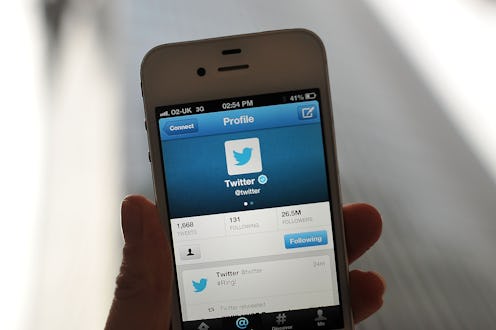
You’ve probably heard by now about the #FeministsAreUgly hashtag that started trending on Twitter last night. It’s still going strong today, and while it seems on its face like it would be the creation of some men's rights activists, the real story might surprise you.
The hashtag was started by two feminist women of color, @LilyBolourian and @Cheuya. Far from being a misogynist creation, it sought, according to Student Beans, to “fight back against the word ‘ugly,’ a word that not only tells you you’re ‘not beautiful’ but that you’ve failed to conform to the mainstream beauty ideal that is almost exclusively white.” The goal was to strip away anyone’s right to judge your appearance in the first place:
Bolourian then sent out a call to action to kick start the hashtag:
And away it went. As #FeministsAreUgly spread, it grew beyond its original scope to include all feminists, men and women; supporters tweeted photos of themselves under the hashtag, putting not just one, but a huge variety of strong, powerful faces to feminism:
Some have commented that tweeting photos connected to #FeministsAreUgly undermines what the it initially set out to accomplish; as Huffington Post UK wrote, rather than reclaiming the phrase, it might just “[play] into the hands of the aforementioned chauvinistic pig” who was initially believed to have created the hashtag in the first place. In some ways, I can see how this might be the case — although ultimately I disagree. Whether or not those who posted images of themselves are “pretty,” the “You think I’m ugly? So be it!” response takes ownership of the hashtag and embrace it. It might act as counter-proof; it might not; but either way, who cares? The folks posting the pictures don’t, and neither should anyone else.
It’s important to note that since the hashtag took off, there’s been a lot of confusion about where it came from. At face value, it looks like something similar to #EndFathersDay: A perfect example of Internet trolling started by one or more anti-feminists. A different type of response seems to be coming at #FeministsAreUgly from the assumption that it, too, was begun by trolls:
But even despite the misunderstanding about the hashtag’s origins, I think the argument made in these reactions still stands, too. We can own the hashtag in more ways than one: One of them is by giving it our faces; the other is by pointing out that “prettiness, “ugliness,” and physical appearance have absolutely nothing to do with feminism.
Sadly, though, are plenty of folks have taken #FeministsAreUgly as gospel, too. While I was doing some digging trying to see if I could figure out where the hashtag originated, I found a whole bunch of anti-feminist websites and forums who were having a field day with the thing. I’m not linking to them, because frankly, I don’t want to give them the traffic — but many of them are holding the hashtag up as validation, as “proof” that “ugliness” is a weapon to be used against feminists, and so on.
Here’s the thing: If your response to a view you don’t agree with isn’t to rebut it with a well-thought-out, logical argument relying on more than just sweeping generalizations or anecdata, but rather to yell “Well… UR UGLY!”, “UR DUMB!”, or something similar in everyone’s faces, you might want to brush up on your debating skills. I’ve been trolled many times in public spaces on the Internet for things I’ve written — it’s an occupational hazard — and I’m fully aware of the fact that I’m probably going to get trolled yet again for this particular piece. The thing with trolling, though, is that it doesn’t support your claim; it undercuts it. You don’t come across as a voice of reason. You come across as juvenile. So, y’know… just a word of advice to the trolls out there.
I can’t speak to the women of color angle from which #FeministsAreUgly originally rose; additionally, I do think the confusion surrounding the origins and point of this particular hashtag speaks to the importance of hashtag clarity. But there’s no denying how powerful it can be when a phrase like “feminists are ugly” is reclaimed — and if it helps the larger conversations about feminism, race, and other weighty topics continue, then we need more of them.
Tweet on, my friends. Tweet on.
Image: maggyvaneijk/Twitter